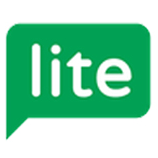How I Created A $60K/Year Software For Novel Writers
Hello! Who are you and what business did you start?
I’m Katja Kaine and I am the founder of The Novel Factory, a novel writing software that helps guide new writers through the novel-writing process.

My company has just launched the latest version of our software, Novel Factory 3.0.
The Novel Factory has dedicated software for novel writers. It helps keep track of characters, locations, and drafts - but it does much more than that. It contains heaps of useful prompts, resources, and guides for writers, to help learn the craft. It also has plot management tools and lets you cross-reference and link all your data.
When we first started we would sell just a few copies of our software every month, but now we get over 1000 free trial signs up every month and over 100 new subscriptions.





























